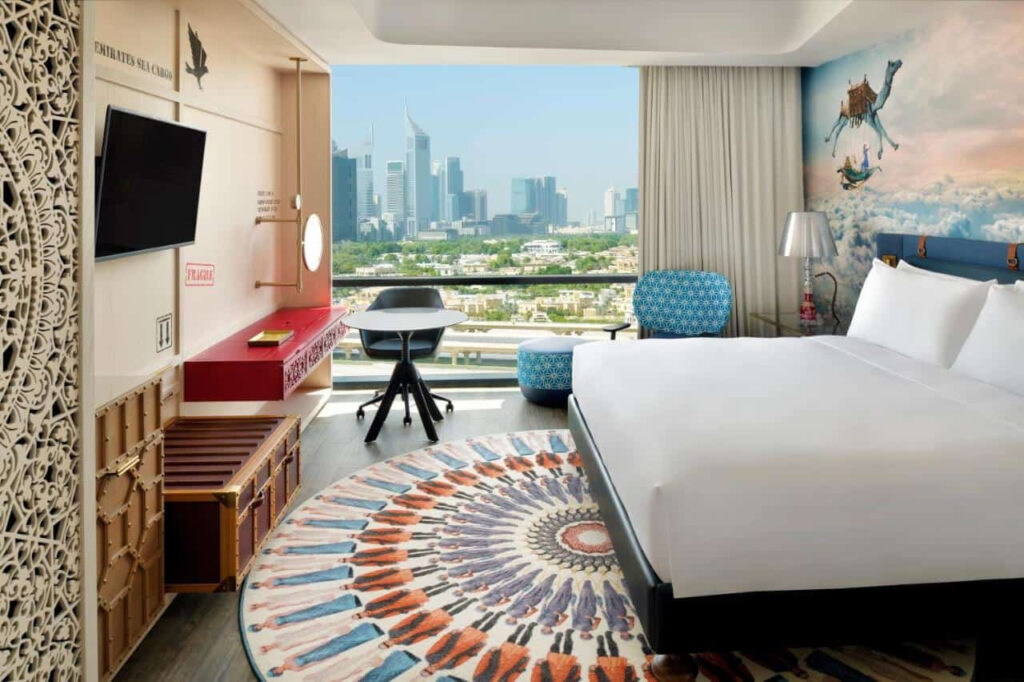
Long-term and short-term contracts between the lessee and the lessor are concluded without third-party witnesses and guarantors. Let’s compare the advantages and disadvantages of daily and long-term rental apartments in Dubai.
Short-term leases offer higher DSA rates but carry certain risks. This rent depends on the seasonality – in summer the property is not in demand, accordingly, the investor’s profit is irregular. While long-term leases bring a slow but stable income. In the article, we will analyze in detail how it works.
First of all, it is important to understand the segments of the audience that rent apartments. For example, short-term rentals are popular with tourists and businessmen who come to Dubai for work. Long-term apartments are in demand among those who are looking for consistency – families with and without children.
READ: Dubai, Abu Dhabi, or Ras Al Khaimah: The Best Option for Investing
Tourists. This is the largest segment in the market, their number varies from 5 to 17 million people a year. Amongst the sought-after accommodations for tourists are both high-end and budget-friendly options, available for stays ranging from a few days to a full year, all within popular tourist destinations. The demand for real estate among tourists is extremely unstable and depends on both the season and the international situation.
Expats. These are citizens of other countries who are moving to Dubai. Dubai Statistics Center reports that in 2023, Dubai’s population exceeded 3.5 million for the first time in history, and that number continues to grow. Dubai is chosen by businesses, families with children of all ages, and single people. This segment prefers large apartments in central, and business areas.
The UAE does not have an annual property tax, but there are annual fees for the maintenance of the complex in which the apartments are located. The fee is determined by the Dubai Land Department Index and ranges from AED 3 to AED 30 (from $0.8 to $8.2) per month per sq. m. The amount depends on the location of the complex, the floors, the availability of the balcony, and other factors. It includes cleaning and removal of garbage, maintenance of order, security, etc.
READ: Dubai Rental Contract Guide: Step-by-Step
The relationship between owner and lessee in long-term contracts is regulated by Law 26 of 2007. In addition to the Law, it is stated that property can be leased for at least a year. If you rent a property for a shorter term – the lease is considered short-term. In the case of a short-term lease, the owner must obtain a license for the activities of the hotel.
Short-Term Rental:
Long-Term Lease:

READ: What is Interesting about Investing in Real Estate in the UAE: Process Features
There is an important condition for the tenant – he must have a resident visa. If you have applied for a visa, but it is not yet ready – as supporting documents must provide a visa application and Emirates ID.
The lease must be registered in the Ejari system run by RERA – only in this case, the agreement will be valid. When extending a contract, the owner is not entitled to increase the cost if 2 years have passed since the first contract was concluded. To boost the rental price, it’s important to consider the RERA index, which provides the average rates for Dubai.
Important info! The Dubai Land Department’s Rent Increase Calculator can calculate the market average cost of renting a house.

The investor can expect an average of 5-8% of the annual net profit when renting a property in the long term. In the case of short-term leases, this number rises to 11-14%.